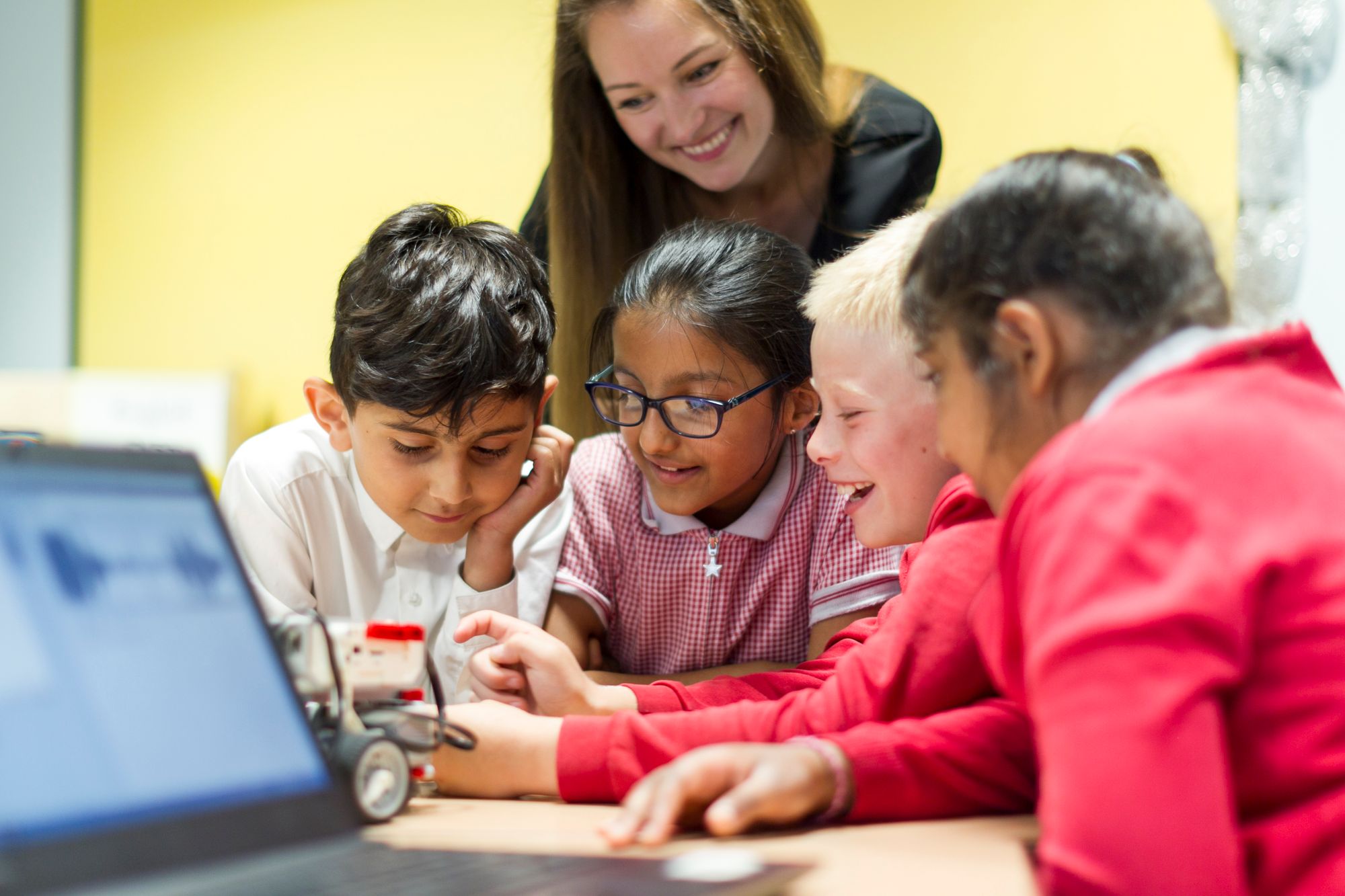Gender Balance in Computing: our interventions
11 November 2019

The different interventions in this programme are related to:
- Belonging
- Storytelling
- Teaching Approach
- Relevance
- Non-formal learning
Primary
Belonging (Year 5) — starts September 2021
The Belonging project aims to increase girls’ sense of belonging in computing. The materials for this intervention have been developed by the Behavioural Insights Team and WISE Campaign, and are based on research which suggests that parental encouragement and exposure to positive role models can help girls feel like computing is a subject where they belong. It involves several in-class activities and some parents receiving text messages from our team to encourage conversations about computing at home over a 12 week period. We will ask some schools to use these materials with their Year 5 classes. Please note: we are no longer accepting applications from schools for this intervention - it is now fully subscribed.
Teaching Approach (Years 4 & 6) — starts September 2021
This teaching approach intervention is based on the idea that current approaches to teaching computing may not be fully inclusive and so may be less appealing to girls. In Key Stage 2, we will explore a collaborative teaching approach and assess the impact it has on engaging girls in computer programming. Free online training will be provided for some schools to learn about the teaching approach and how to embed it in their classrooms, along with 12 hours of teaching materials including lesson plans which have been developed by the Raspberry Pi Foundation.
Non-formal learning — starts October 2021
In the non-formal learning intervention, we will seek to strengthen the links between non-formal learning and studying computing at GCSE or A level. This is because girls are often unaware that their non-formal learning about computing can help them in formal studies. We have created specific resources for schools running Code Clubs programmes which signpost the links between non-formal and formal learning of computing, and how these can lead to future aspirations and subject choices later on. Schools will be asked to use either the adapted resources or regular Code Club resources for 12 sessions.
Secondary
Teaching Approach (Year 8) — starts October 2021
The teaching approach intervention is based on the idea that current approaches to teaching computing may not be fully inclusive and so may be less appealing to girls. In Key Stage 3, we will explore a collaborative teaching approach and assess the impact it has on engaging girls in computer programming. Free online training will be provided for some schools to learn about the teaching approach and how to embed it in their classrooms, along with 12 hours of teaching materials including lesson plans which have been developed by the Raspberry Pi Foundation.
Relevance (Year 8) — starts January 2022
This intervention aims to help learners to see the real-world applications of learning computing. We will support schools to engage pupils by helping them to solve real-world problems through technology while studying the computing curriculum. Apps for Good and the Raspberry Pi Foundation have developed a free online training course and 12 hours of lessons to deliver with Year 8 pupils which we will ask some schools to use. These resources are based on existing research which suggests that girls value the opportunity to use computing in real-world applications.
In progress: results coming soon!
Storytelling (Year 2) — started April 2021
Evidence suggests that gender stereotypes develop early and so in Key Stage 1, we will explore how storytelling and story-writing can be an effective introduction to computing. The Raspberry Pi Foundation have created new lesson plans and supporting resources and will provide free online training on the effective use of these materials so that some schools can use them in their classrooms with Year 2 pupils for 12 weeks. Please note: we are no longer accepting applications from schools for this intervention - it is now fully subscribed.
Non-formal learning (Year 8) — started April 2021
In the non-formal learning intervention, we seek to strengthen the links between non-formal learning and studying computing at GCSE or A level. This is because girls are often unaware that their non-formal learning about computing can help them in formal studies. We have created specific resources for schools running the Apps for Good programme which signpost the links between non-formal and formal learning of computing, and how these can lead to future career/subject choices later in the participants’ lives. Schools will be asked to use either the adapted resources or regular Apps for Good resources for 12 sessions. Please note: we are no longer accepting applications from schools for this intervention - it is now fully subscribed.
Information for all interventions
All interventions will be run as randomised controlled interventions and evaluated by a team of analysts from the Behavioural Insights Team.
Get involved in this landmark programme
- Register your interest in taking part
- AND/OR share this article with a teaching colleague in a different school and invite them to register their interest
- AND/OR if you’re interested in this research but can’t take part, we’d love you to sign up to our newsletter, and to share this article in any newsletters, blog entries, or social media posts your schools puts out
Your support is invaluable — together we can work to improve gender balance in computing!